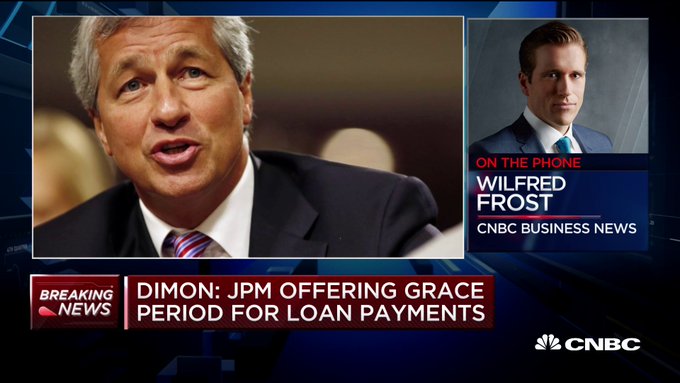Though, leaving off on an optimistic note, he warned that while the challenge ahead might be great, he believes the US economy can emerge from it "stronger" than in the past.
"We have the resources to emerge from this crisis as a stronger country," Dimon said in the letter. "America is still the most prosperous nation the world has ever seen."
This, after sell-side banking analysts have spent the last two weeks telling CNBC's audience that the banks are much better capitalized this time around (though excessive corporate debt is keeping some up at night).
"At a minimum, we assume that it will include a bad recession combined with some kind of financial stress similar to the global financial crisis of 2008," Dimon wrote in the letter to shareholders. "Our bank cannot be immune to the effects of this kind of stress."
The fact that the CEO's 23-page letter is his shortest in more than a decade (since March 2008, just months before the global economy nearly collapsed) is hardly a surprise: Dimon suffered a sudden 'heart tear' requiring him to have sudden, emergency surgery earlier this month. The letter is roughly one-third the length of last year's screed, where Dimon laid out his vision of a more 'responsible' and 'equitable' iteration of American capitalism, while also warning that 'democratic socialism' was not the way to go.
As far as JPM is concerned, Dimon reminds us that the bank's 2020 submission to the annual Fed stress tests indicate that even in an "extremely adverse scenario," JPMorgan can lend out an additional $150 billion for clients. The New York-based bank had $500 billion in total liquid assets and another $300 billion in borrowing ability from Fed sources, he added.
Notably, while JPM "will participate in government programs to address the severe economic challenges, we will not request any regulatory relief for ourselves," Dimon added, echoing language he used during the financial crisis.
Because of his illness, Dimon hasn't weighed in publicly about the virus since late February, during the bank's annual investor day.
For a quick rundown, see CNBC's Wilfred Frost below:
JPMorgan Chase CEO Jamie Dimon just released his annual letter to shareholders, focusing on the impact of the coronavirus crisis. @WilfredFrost breaks down the details. cnb.cx/2UPrzzX


Commenti
Posta un commento